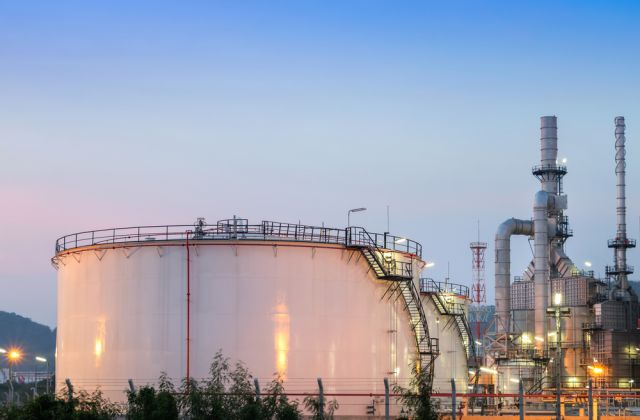
Wright said there were no replacements for the vast majority of the uses for oil and gas, adding that the energy system in 2050 wouldn’t likely change from what it looks like now. (Source: Shutterstock)
SHREVEPORT, La. -- Given record global demand for crude, natural gas and coal, the energy transition hasn’t really begun, said Liberty Energy Chairman and CEO Chris Wright during the DUG GAS+ Conference and Expo this year.
“Energy transition to me is when a new energy technology is supplying more than just the growth in energy, and it's actually starting to displace or transition another energy source,” Wright said during his discussion at the two-day event in Shreveport, Louisiana. “We're just not even close to that.”
“We use the term all the time, ‘energy transition,’ but the numbers don't support the term,” Wright said.
Energy is just the agent of change, and Wright argued that the shale revolution had “transformed the energy markets, transformed the economic prospects of our country [and] transformed energy security and geopolitics.”
Modern alternatives such as solar and wind only provide a portion of electricity demand and doesn’t replace the most critical uses of hydrocarbons, he said. Energy-dense reliable nuclear power could be more impactful.
“In the last 12 years, natural gas, oil and coal contributed the most additional energy, providing 76% of the growth in energy consumption,” Wright said, adding that around 40% of that growth came from gas, around 24% came from oil and around 12% came from coal, quoting figures from the “Bettering Human Lives” book published by Liberty Energy.
The book provides the data and context to evaluate the inevitable tradeoffs between energy, climate change, poverty, and prosperity, according to Wright.
Wright said there were no replacements for the vast majority of the uses for oil and gas, adding that the energy system in 2050 wouldn’t likely change from what it looks like now.
“The advantages of hydrocarbons are just so gigantic that we should just be realistic about the role they play and will continue to play,” Wright said. “And I believe the fastest growing energy source in the next 20 years almost for sure will be natural gas.”
Climate change is real
Wright said that climate change is a reality, but took issue with branding a phenomenon “slow moving and modest” as a crisis.
To Wright, climate change is not the world’s biggest problem. Rather, challenges such as malnutrition, basic healthcare, pollution or education take precedence.
“These are factors that massively change people's quality of lives, all of these problems, every one of them, are dramatically more important than climate change,” Wright said.
Likewise, he said global initiatives to reach net zero by 2050 overshadow a more important goal. “Zero energy poverty by 2050 is a far superior goal to net zero 2050 for two summary reasons: it's achievable and it's a good thing if we achieve it,” he said.
Recommended Reading
E&P Highlights: Feb. 26, 2024
2024-02-26 - Here’s a roundup of the latest E&P headlines, including interest in some projects changing hands and new contract awards.
Halliburton’s Low-key M&A Strategy Remains Unchanged
2024-04-23 - Halliburton CEO Jeff Miller says expected organic growth generates more shareholder value than following consolidation trends, such as chief rival SLB’s plans to buy ChampionX.
Exxon Ups Mammoth Offshore Guyana Production by Another 100,000 bbl/d
2024-04-15 - Exxon Mobil, which took a final investment decision on its Whiptail development on April 12, now estimates its six offshore Guyana projects will average gross production of 1.3 MMbbl/d by 2027.
Comstock Continues Wildcatting, Drops Two Legacy Haynesville Rigs
2024-02-15 - The operator is dropping two of five rigs in its legacy East Texas and northwestern Louisiana play and continuing two north of Houston.
For Sale, Again: Oily Northern Midland’s HighPeak Energy
2024-03-08 - The E&P is looking to hitch a ride on heated, renewed Permian Basin M&A.






